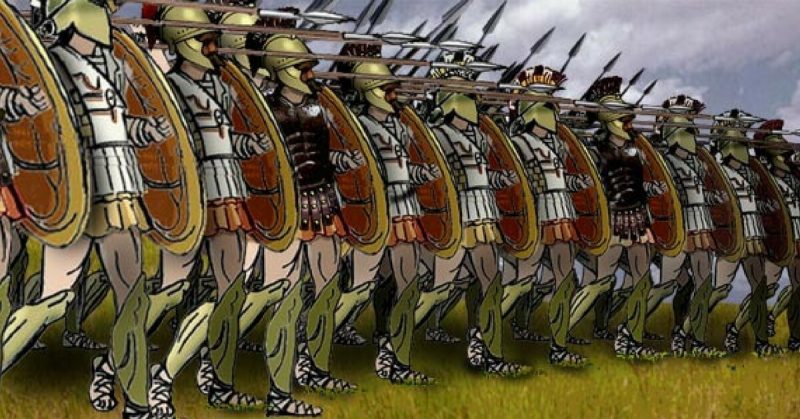The Greeks sure seem to like the number 300. The 300 Spartans (and their 7,000 allies) at Thermopylae, the 300 Theban Sacred Band, and the little-known battle of the 300 Champions, fought very early in Greek history. Before Persia was a grave threat, actually while Cyrus the Great was building Persia into an ancient superpower, the Greeks quite often fought amongst themselves. Greek shared culture did exist and this thin unity would save the Greeks from Xerxes later, but the link was thin enough for countless Greek cities to be ruthlessly sacked through a variety of Greek City-State wars.
One such war was between the Spartans and the people of Argos (known as Argives, not Argonauts who were a band of mythical heroes) over the coastal town of Thyrea that lay between the two city-states. make no mistake, the Argives were outstandingly fierce soldiers, especially so during their early history. Around this time Argos directly competed with Sparta for dominance of the Peloponnese and competed well. When the Spartans took over the fertile plains of the Argive-allied Thyrea, the Argive army confidently marched out in force.
The numbers of the armies were likely 5-10,000 each and were probably very equal in number. Rather than smash thousands of good hoplites together over a field, the commanders agreed to pick 300 of their best men per side and have them fight the battle. it was decided that the rest of the armies would retreat, leaving just the 600 champions. Whichever side won the smaller battle would claim the field, and presumably the city. It would be a clear-cut decision the commanders could agree on and it would save more Greek lives overall. It is a testament to the confidence of the Argives and the Spartans that they both firmly believed that their picked 300 would win the day.
The battle started at morning or midday and 600 of the greatest champions in Greek history went to battle with each other. The fighting was fierce and steady, continuing until nightfall. Eventually, it got to the point where 597 of the champions had been killed or mortally wounded. Left alive were two Argive champions and a wounded Spartan.
The surviving Argives, Alcenor and Chromius, thought they had killed all of the Spartans and so they limped back to their camp and proclaimed victory. Little did they know that a terribly wounded Spartan, Orthryades, still lived and stood on the battlefield. As the last man standing on the field of battle, Orthryades claimed victory for the Spartans.
As one might expect, things got confusing from here. Orthryades was indeed terribly wounded and likely would have died from his wounds. He instead took his own life, being disgraced by the fact that he was the only man in his unit to survive. This made it so that the last Spartan was not killed by an Argive’s hands, giving the Spartans claim to a technical and honorable victory. The Argives claimed that their men actually survived the battle and they had two survivors. In our modern world it would seem clear that the Argives really had the best claim to the victory, but in the Greek world, each side really did have a fairly good claim to victory, and the story certainly circulated throughout the Greek world, becoming fairly legendary even in its own time.
Outraged by this, the Argives decided to just attack the Spartans with their full force. The large scale battle was likely fought on the same disputed fields. The higher base standard of Spartan training won the day for them in the larger battle and the Argives were sent back to Argos, leaving Thyrea in the hands of the Spartans. the Argives reportedly made a law stating that no Argive man could grow out his (traditionally long) hair and no woman could wear gold until Thyrea was recovered from the Spartans.
Over a hundred years later, Sparta had come to dominate most of the Peloponnese. Argos had actually been loosely allied with the invading Persians and so they saw their prestige among City-States fall after the Greek victory. When the Peloponnesian wars kicked off, it gave several Greek cities a new chance to become powerful and relevant and Argos jumped on the chance to challenge their old Spartan rivals to another battle of 300 champions. The Spartans, facing a wealthy and determined Athens, wisely declined the offer and it would remain a point of serious contention of who had the best of the best, Argos or Sparta.
